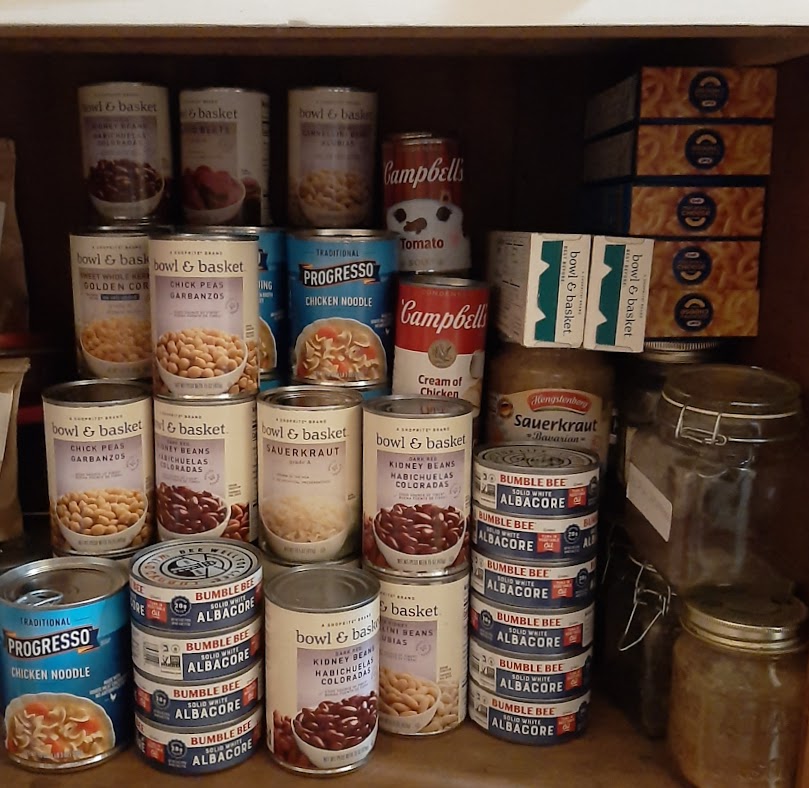There are several different ways that food pantries work to reduce food waste while meeting the nutritional needs of their clients.
(Before listing these: monetary donations are vital. They allow the food pantry to shop for fresh food directly from local grocery stores.)
Food Pantries Partner with Local Food Businesses
Food pantries build relationships with local food businesses. With USDA safety regulations guiding their methods and means, food pantries stock their shelves.
Some food pantry acquisitions may be clearance items with remaining shelf life.
These might be seasonal items that did not sell during a particular promotional period; for example, an odd lot of holiday cookies cleared away at the new year, or an autumn coffee blend on the shelves past November.
Food Pantries Partner With Local Farms
Still others might be surplus from local farms, meat markets, and other local food establishments.
For example, if a farm has hens producing more eggs than are selling in a given time frame, the surplus may be offered to a food pantry.
Food Pantries Receive Donations from Grocery Stores
Local produce as well finds its way to the food pantry with the purpose of clearing end-of-season selections that serve the nutritional needs of food pantry clients.
Food Pantries Welcome Donated Local Meats and Fish from Individuals
Farmers, hunters and fishermen partner with food pantries; donating seasonal, local meats that have been packed and frozen for distribution.
Food Pantries Receive Shelf Stable Food Donations from Community Members
Another way that food pantries reduce food waste is by accepting shelf stable food and product donations from the local community.
Think of this as a clearing away of items that aren’t being used, but which somebody else might value.
For example, maybe the canned chickpeas that you picked up on a whim are sitting unused in the back of your cabinet. Or perhaps you tried soybean noodles but decided they were not for your family.
A food pantry client might actually enjoy these items, and derive benefit from their nutritional value.
Your unloved chickpeas could become a delicious vegetarian stew for a hungry family.
Food pantry donations are tax deductible.
Whether you are an individual or a local business; if you donate, ask for a receipt. Store this in a safe place so that you may later furnish it to the IRS at tax filing time.
We gratefully welcome donations from the local community.
Donate to the Washington Basket Food Pantry in Warren County, NJ
More info and a donation submission form can be found here.
Thank you so much for your support, from The Washington Food Basket in Washington, Warren County NJ.
They are a location of the Open Cupboard Food Pantry in Clinton.
Like and Follow the Washington Basket Food Pantry on Facebook.
